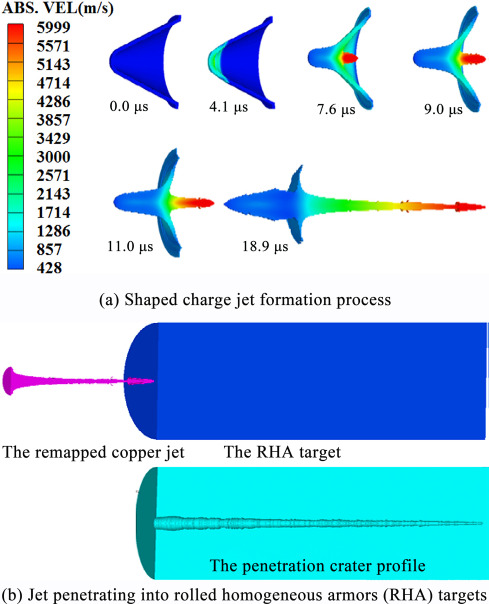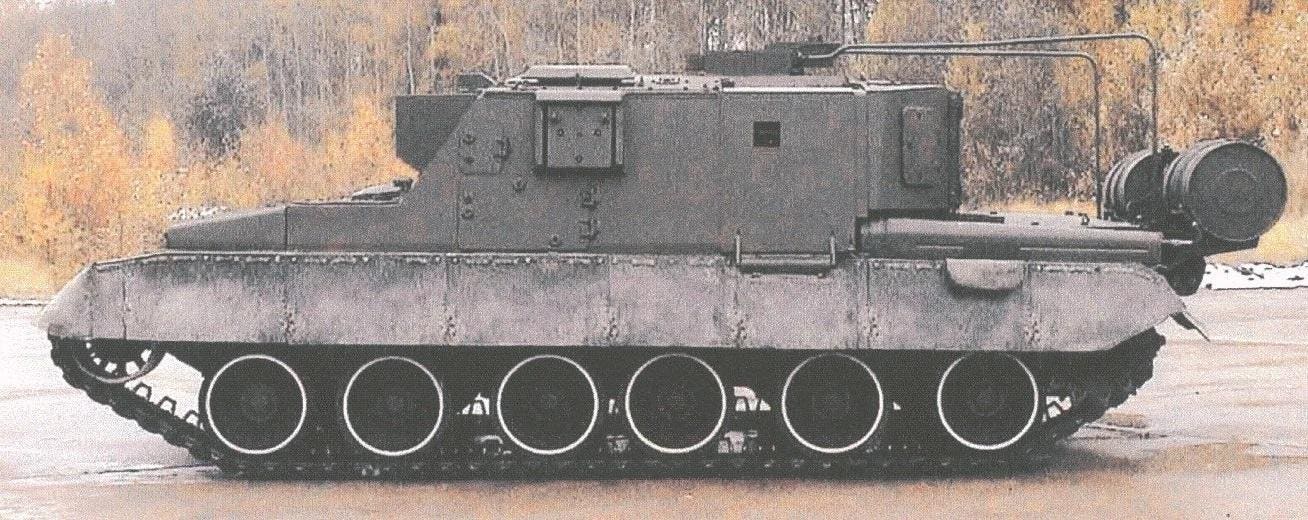Aren’t all armoured vehicles pretty much NBC proof nowadays? Aren’t they made that way in Russia?
Were they made by Tesla?
Intentionally misleading headline, but not technically incorrect.
These are designed to carry troops through an irradiated battle space and keep them safe from the fallout. At least while they’re inside and the filtration systems are functioning properly.
That doesn’t mean they were magically enhanced to be impervious to antimaterial weapons, or other types of kinetic damage that happen in combat.
Plus, even if it was that kind of nuclear-proof, all that really means is that it can take the pressure of nuclear explosion over its body. Devices based on point pressure, like the kind used in anti-armor rounds or bunker buster bombs, can and do punch through nuclear-hardened targets.
As an example, RPGs use shaped charges to send a jet a molten copper through armor steel. Even though the devices may seem antiquated, they are extremely effective at burning holes through tanks. If that molten jet happens to come in contact with ammunition, it’s generally game over.

As far as I know the copper doesnt actually melt.
I have heard a few things, TBH. Everything in the range from simply vaporized and hot to the vaporized metal being in a near plasma state. Shrug.
Wikipedia gives a few numbers ranging from 660K to almost 1200K (copper melt temp is 1358K) from testing it quotes. It seems to be dependent on the cone alloy and the explosive type.
In practice, it’s probably is all over the place in regards to temperature. If you can round up a few RPGs, I would totally be down for some testing…
Sadly I have neither the ability nor the funds to procure a couple RPGs.
Just duct tape some EREC (explosive reactive egg cartons) on that bitch and you’ll be good to go.
Thanks for this, I didn’t know people thought that nuclear-proof meant that it could literally take a nuke. I certainly hope people haven’t been thinking that a MOPP suit will make one a super soldier impervious to nukes or anything considered a chemical (which could be interpreted as all matter).
I know I was assuming that the Russians claimed that they were nuclear bomb proof, at least for the 30 seconds that I knew about them before I read this thread. Seeing the picture I didn’t believe that they were in in actuality.
Most people still think the explosion at Chernobyl was an accident.
What are you talkin about, everyone knows the longer you sweat in a MOPP suit the more rad resistance you develop, especially on a hot day
That’s what I’d assume based on the name. If it’s radiation/fallout proof, I’d expect them to list it that way.
I assumed it was designed to survive some proximity to a nuclear strike. But definitely not a close-hit, or direct strike.
Far enough away and shielded enough that the flash of radiation doesn’t render its occupants immediately dead.
The article’s premise is that it is a very particular vehicle, the use of which points to scraping deep into the reserves.
Yeah, that’s the real story. They’re dragging out museum pieces. People who have been anticipating the T34 showing up are getting real excited.
Ladoga –a Russian armoured personnel carrier. Initially called Debut, this APC is designed for evacuation of Soviet government from Kremlin to airport under nuclear/chemical/biological attack. Ladoga uses tracks from the T-80U as well as suspension system and gas-turbine powerplant. The crew is 2 soldiers. It also has a four-seat cab equipped with a crew life-support facilities to protect the passengers against the radiological, chemical and bacteriological contamination of the environment.
https://en.m.wikipedia.org/wiki/Ladoga_APCwith life support facilities to protect the passengers against the radiological, chemical, and bacteriological contamination of the environment, but not a $1,000 USD drone fitted with an explosive device.
Fixed that segment for you lol
No fault of the design. It was meant for a particular role. It is being brought out and borderline misused in a different role. I can get behind loling at Russia, but this is like laughing at an M4 Sherman for not having ECM built in. I’d laugh at the people who rolled it into a modern conventional fight, but the design seems competent for the time and role.
No amount of NBC* protection was ever going to stop a direct hit anyway. They’re completely different things.
*Nuclear, Biological, & Chemical
The article’s premise is that this is a vehicle designed for a very particular role, which is now being brought out and used outside that role, illustrating how deep into reserves Russia is scraping for vehicles.
Compared to a golf-cart or dirt bike, a Ladoga is much better-suited for mechanized warfare.
I don’t know. Like, yes, by definition, a dirt bike isn’t what a mechanized unit uses; that’s a motorized vehicle. But…I think that there’s a fair question of how well the roles can match.
Specifically for nuclear war, then yeah, obviously the Ladoga is better. It’s got environmental protection.
But I’m not sure that light armor will necessarily have the role it has over past decades in the future.
The point of light armor is to deal with rifle and machine gun bullets – as in ambushes – and near-miss artillery fragments. It will work well for that.
I don’t know what portion of actual damage to Russian forces is presently coming from those, though. I mean, if the armor isn’t stopping what’s killing the thing, it might not buy much. It won’t stop top-attack ATGMs. It won’t stop drones carrying heavier munitions. It won’t stop guided munitions like GMLRS or guided artillery.
If we can provide enough tube artillery and shells, that might change. But if warfare here is characterized by mostly highly-accurate, long-range weapons capable of penetrating the armor that vehicles have…that armor might not provide much protection.
For an analog, think of how it used to be common for individual soldiers to wear heavy armor up until things like crossbows and firearms, long-range weapons that could penetrate it, killed it:
https://en.wikipedia.org/wiki/Plate_armour
As firearms became better and more common on the battlefield, the utility of full armour gradually declined, and full suits became restricted to those made for jousting which continued to develop.
It’s not impossible that the same phenomenon could affect vehicle armor. Maybe not all vehicles, but it might make it a lot-less-valuable to have light armor.
And unarmored vehicles tend to be faster, which helps limit their time in a dangerous zone.
I think that a dirt bike, which might be good as a vehicle for a single person, maybe two, has some serious limitations – it can’t load up anyone if they do get hurt. It can’t pull towed equipment. It has a limited ability to carry supplies.
But it can also traverse trails that four-wheel vehicles cannot. It can be easily hidden. It is inexpensive and can be easily provided in large numbers. It is light and can be delivered via air. Many people each on a dirt bike are less of a concentrated target than a group of people in an APC; against a weapon that light armor doesn’t stop, the dirt bike may be more resilient than light armor.
In World War II, there were some very substantial successes that various militaries pulled off with bicycle infantry, which is pretty analogous; Japan’s rapid movement in the Battle of Singapore is probably the poster child for that:
https://en.wikipedia.org/wiki/Fall_of_Singapore
The capture of Singapore resulted in the largest British surrender in its history.
Conventional British military thinking was that the Japanese forces were inferior and characterised that the Malayan jungles as “impassable”; the Japanese were repeatedly able to use it to their advantage to outflank hastily established defensive lines.
Despite their numerical inferiority, they advanced down the Malayan Peninsula, overwhelming the defences. The Japanese forces also used bicycle infantry and light tanks, allowing swift movement through the jungle. The Commonwealth having thought the terrain made them impractical, had no tanks and only a few armoured vehicles, which put them at a severe disadvantage.[25]
E-bikes can be very quiet.
There have been a history of unarmored vehicles that we’ve used in combat. And I don’t mean the Jeep, but in contemporary times.
https://en.wikipedia.org/wiki/Desert_Patrol_Vehicle
https://en.wikipedia.org/wiki/Light_Strike_Vehicle
Bikes or motorbikes can also bypass unexpected obstacles. If your APC is rolling down the road and there’s a tree fall you most likely need to stop your vehicle and get out and clear it. Bikes or motorbikes may not even need to slow down, just bypass the obstacle entirely. Think of that scene in Children of Men with the fallen tree and the flaming car rolled down the hill, that ambush relied entirely on stopping the target, but probably wouldn’t have worked as well on a group of bikers.











